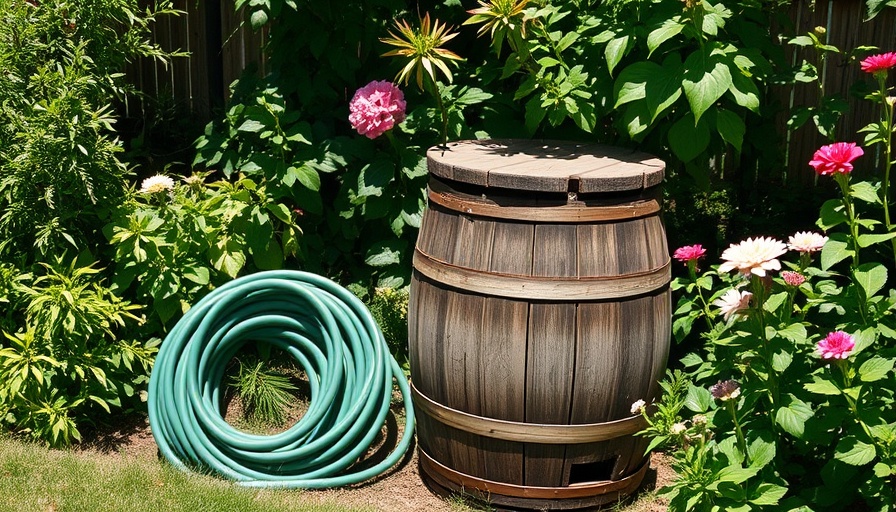
Protecting Your Garden: Keeping Mosquitoes Out of Rain Barrels
As summer approaches, many gardeners eagerly await the opportunity to collect and utilize rainwater in their barrels. While rain barrels are a fantastic resource for conserving water, they can also inadvertently turn into breeding grounds for unwanted mosquitoes. A recent study by researchers from the University of Illinois Urbana-Champaign provides groundbreaking insights into keeping these pesky pests at bay, all while preserving the utility of our cherished rain barrels.
Understanding the Mosquito Issue: Why Rain Barrels Attract Them
According to the Centers for Disease Control and Prevention (CDC), mosquitoes are attracted to standing water, which often gathers in rain barrels. This stagnant water serves as an ideal habitat for mosquitoes to lay their eggs. In the study observing 53 households with rain barrels in central Illinois, it was discovered that over half of the barrels surveyed contained mosquitoes, indicating a widespread issue that could affect many households.
Effective Strategies for Homeowners: Your Battle Plan Against Mosquitoes
The study revealed a variety of strategies that homeowners can employ to thwart mosquito breeding in rain barrels. One particularly effective method is to fit barrels with tight, fine-mesh screens. This simple solution can significantly reduce mosquito access, ensuring that the collected rainwater remains safe for use. Additionally, the use of Bacillus thuringiensis israelensis (Bti)—a natural bacterial insecticide—along with chlorine, can help maintain the cleanliness of the water and deter mosquito presence.
Natural Predators: Introducing Goldfish to the Mix
A rather unconventional yet effective method highlighted in the research involves introducing natural predators into rain barrels. By placing goldfish in the water, homeowners can benefit from these fish's appetite for mosquito larvae. This not only curtails the mosquito population but adds a lively element to the rain barrels, enhancing the aesthetic of any garden space.
Potential Risks: Balancing Water Usage with Mosquito Control
While these preventive measures may prove effective, it's essential for users to remain aware of their water usage. For instance, while Bti-treated water can be beneficial for decorative plants, it is crucial not to use such water for food crops. Homeowners should always inspect and clean their rain barrels regularly, particularly during the mosquito breeding season.
Community Outreach: The Importance of Shared Responsibility
Following the research findings, it is evident that individual action must be supported by community education. The study's authors advocate for increased awareness programs to ensure that all rain barrel users understand the importance of maintaining their systems. By joining efforts, communities can significantly reduce the risk of mosquito-related diseases and enhance public health.
In Conclusion: Empowering Your Eco-Friendly Practices
With some simple preventative measures, it's possible to effectively keep mosquitoes at bay and make the most of your rain barrels. Regular maintenance, community education, and the introduction of natural pest-controlling methods can transform your barrels into a safe resource for sustainable gardening.
Embark on this journey of eco-friendly living and do your part in making your garden not just flourishing, but also a pest-free haven.
 Add Row
Add Row  Add
Add 



 Add Row
Add Row  Add
Add 

Write A Comment